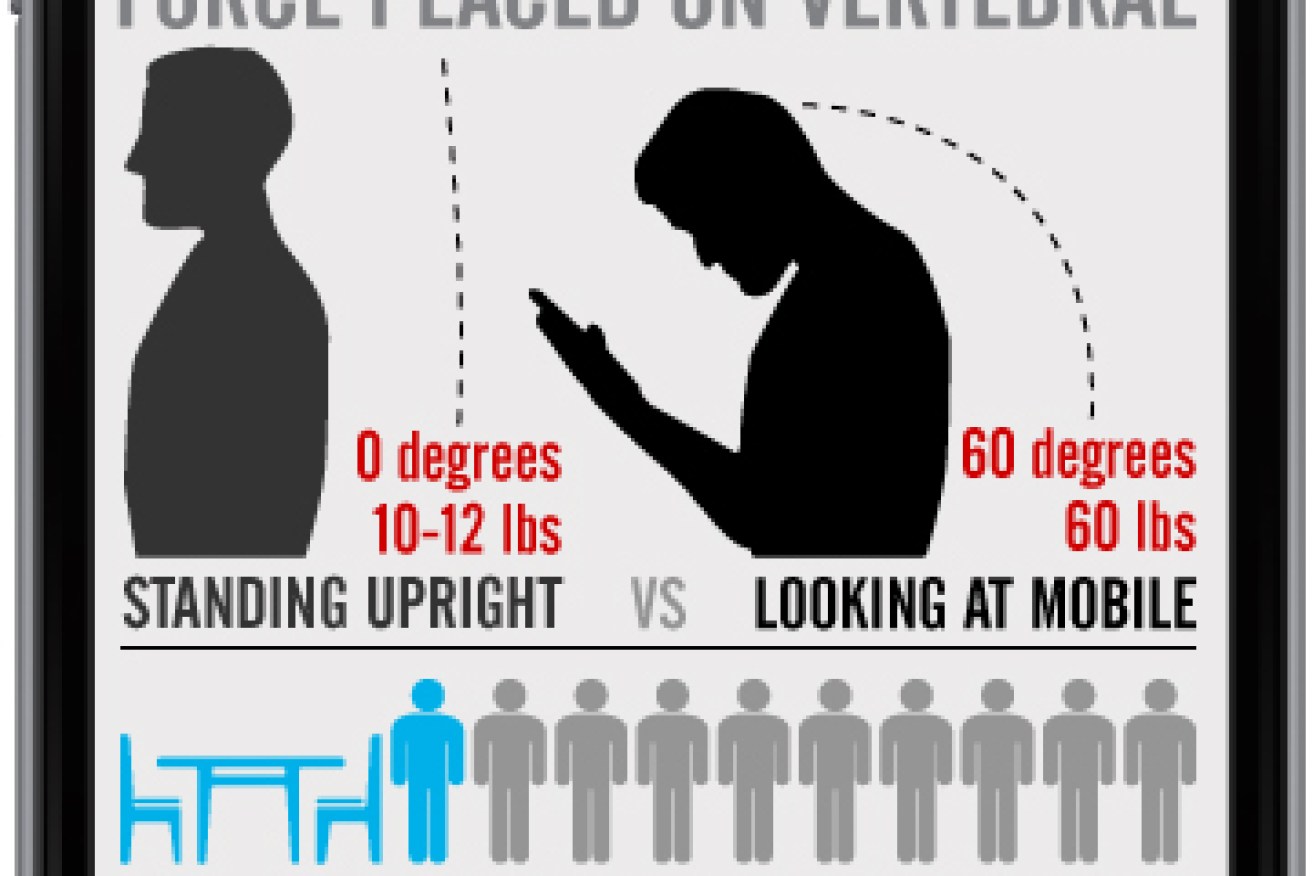Three ways your mobile phone is bad for you

Rampant phone use could be causing vision loss, sleep deprivation and severe back and neck problems, experts have warned.
Research from Optus shows mobile data use in Australia has almost tripled in the past two years, as watching a video on a mobile device becomes a daily habit for many.
We love ‘how-to’ videos and movie previews, often shared by our friends and prefer shorter clips of less than two minutes, the telco revealed.
• Disaster scene selfies: narcissism gets nasty
• Telstra slammed for sluggish Netflix speeds
• The controversial lives of the world’s top tech-heads
But as our constant ‘snacking’ on mobile content increases exponentially, health experts have warned mobile and tablet users to beware of the damage it could be doing to your body.
Vision

Stats from: Optus research and NYC Spine Surgery/Rehab Medicine study in stress on spine from head position
Research by Optometry Australia and others has linked increased screen time for children, combined with less “green time” outdoors, to increased rates of short-sightedness.
“As a human race, we are making ourselves more and more short-sighted,” the group’s resident optometrist Luke Arundel told The New Daily.
“Our visual system is geared for what we used to be doing — hunting and gathering, looking into the distance, and occasionally focusing in closer,” he said.
Short-sightedness will affect 5 billion people worldwide by 2050, the World Health Organisation has estimated.
Spinal damage
Constantly burying ourselves in our phones also damages the neck and spine, according to University of Queensland physiotherapy researcher Dr Julia Treleaven.
“We know that sustained positions often will definitely increase the neck pain of those who already have it … particularly when the neck is forward because that’s not a normal position for the neck,” Dr Treleaven said.
“We also know that a lot of the muscles that support your spine are at a disadvantage when you’re in that flex position.”
A report from the New York Surgery and Rehabilitation Medicine Centre supports this claim.
Sleep deprivation
Late night smartphone sessions beneath the sheets may also be triggering sleep deprivation, this Business Insider report suggests.
As early as 2011, a study by the American Physiological Journal found that light keeps people awake by suppressing sleep-triggering hormones in humans.
The study found that blue light is particularly destructive in this regard. Unfortunately for us, our mobile devices emit primarily blue light.
Since our body clocks are programmed to respond to daylight, a bit of blue light at bedtime can wreak havoc on our circadian rhythms, effecting the quality and quantity of sleep.
The effects of poor sleep are many. Long-term sleep deprivation has been linked to weight-gain, diabetes, stress, premature ageing and even an increased risk of suffering from a stroke, depression, or a heart attack.
Struggling against the mobile tide
Despite the health risks, our smartphone use is likely to continue, and possibly increase.
Last year was the first that Australians were more likely to browse the internet on phones than computers, increasing the health risks.
And the explosion of mobile video content has now become a staple of our daily phone diets.
Big players Optus, Virgin and Telstra and smaller telcos like Amaysim have all recently unveiled vastly increased data allowances to meet growing demand.
Mr Arundel believes that video watching on mobiles could increase as these companies sell more data for less.
“It is a significant issue because it is something that could lead to more screen time vs green time,” Mr Arundel said.








